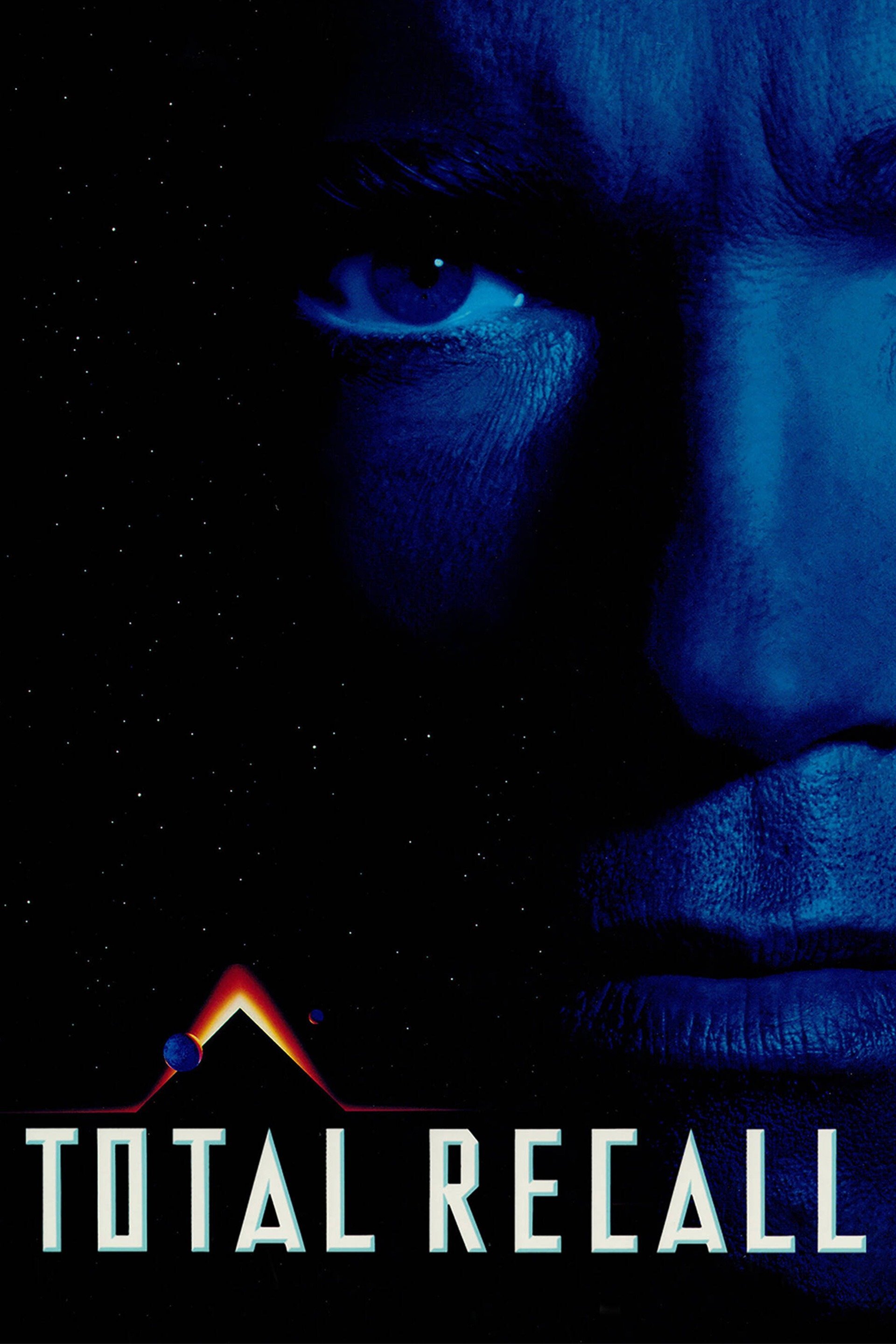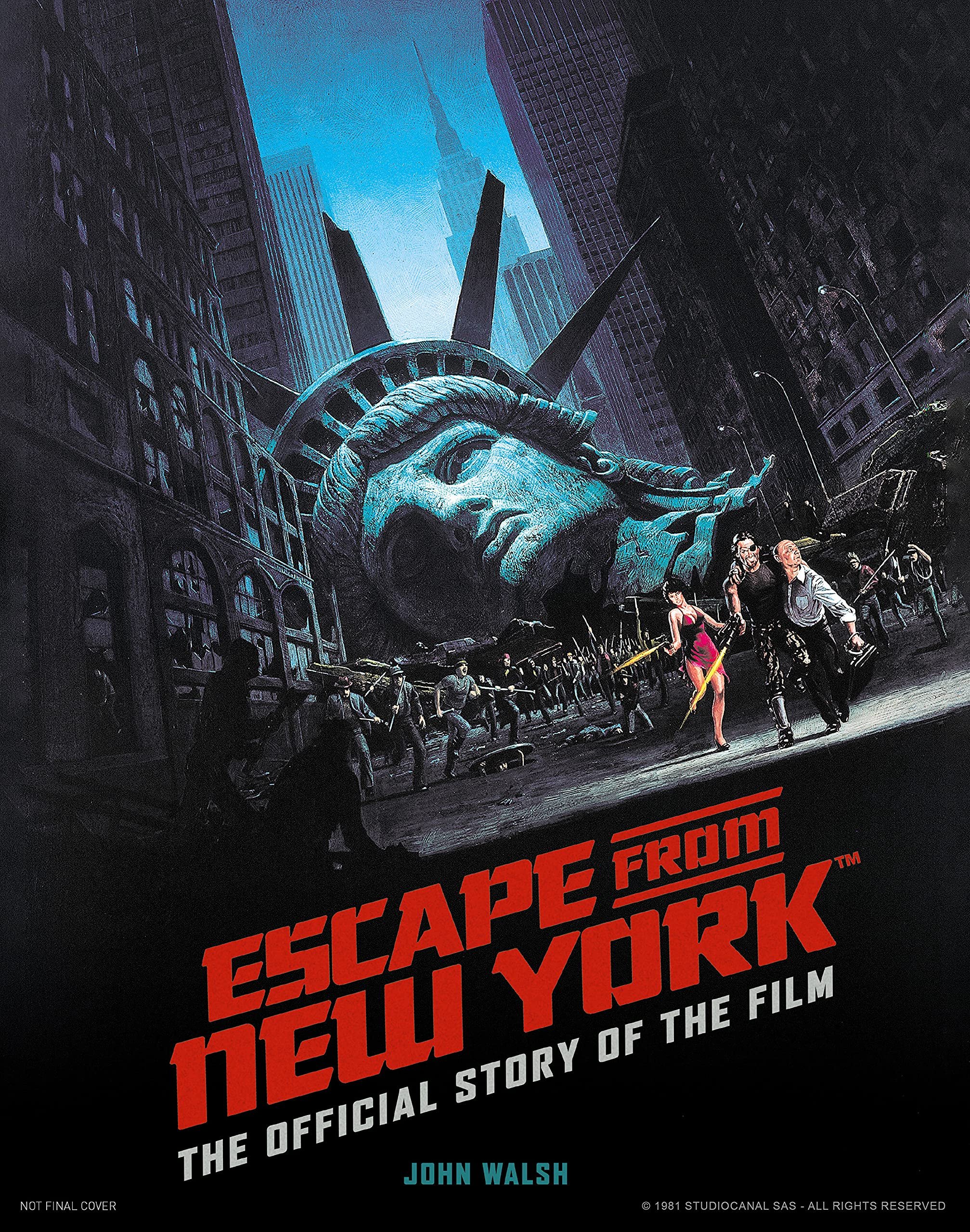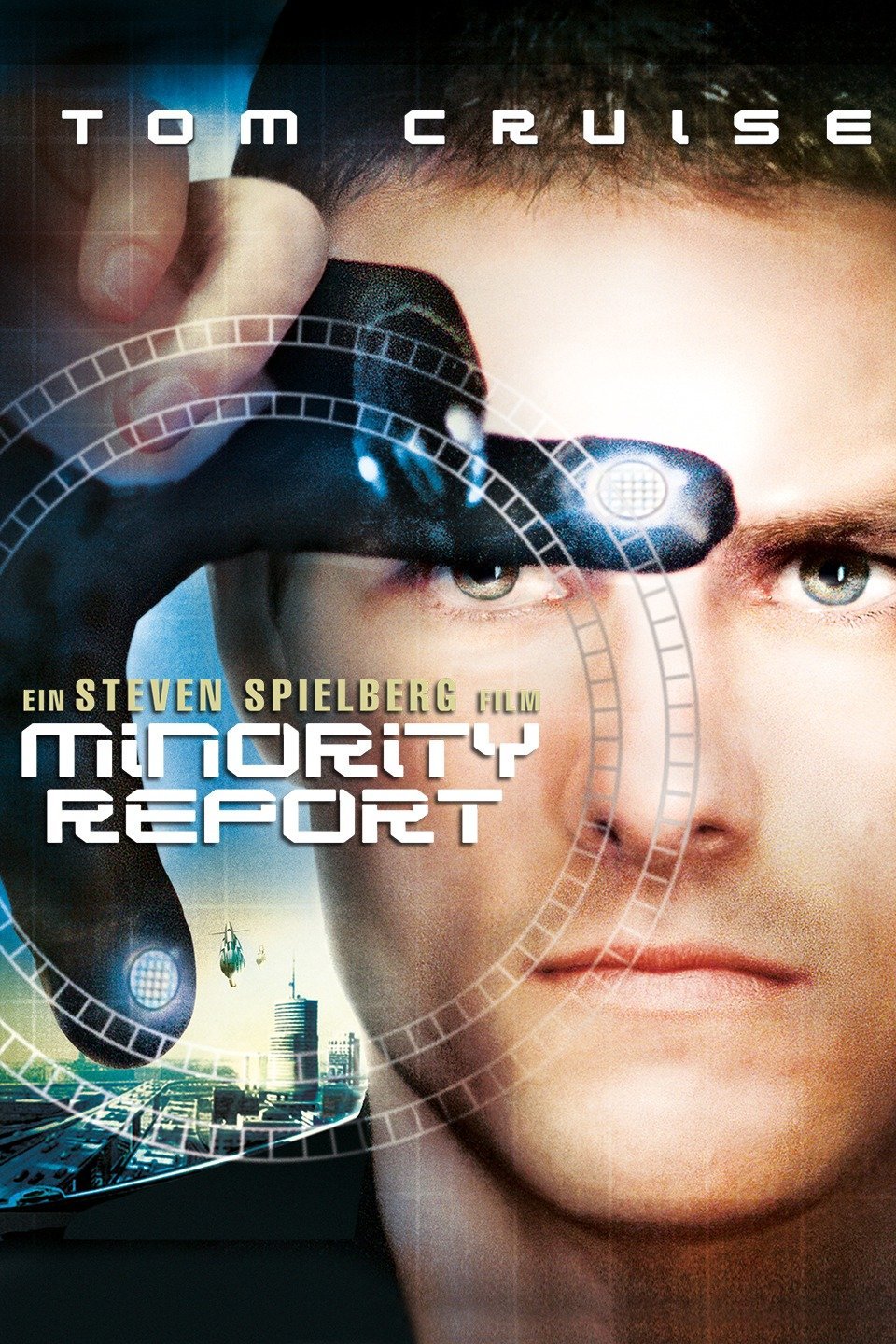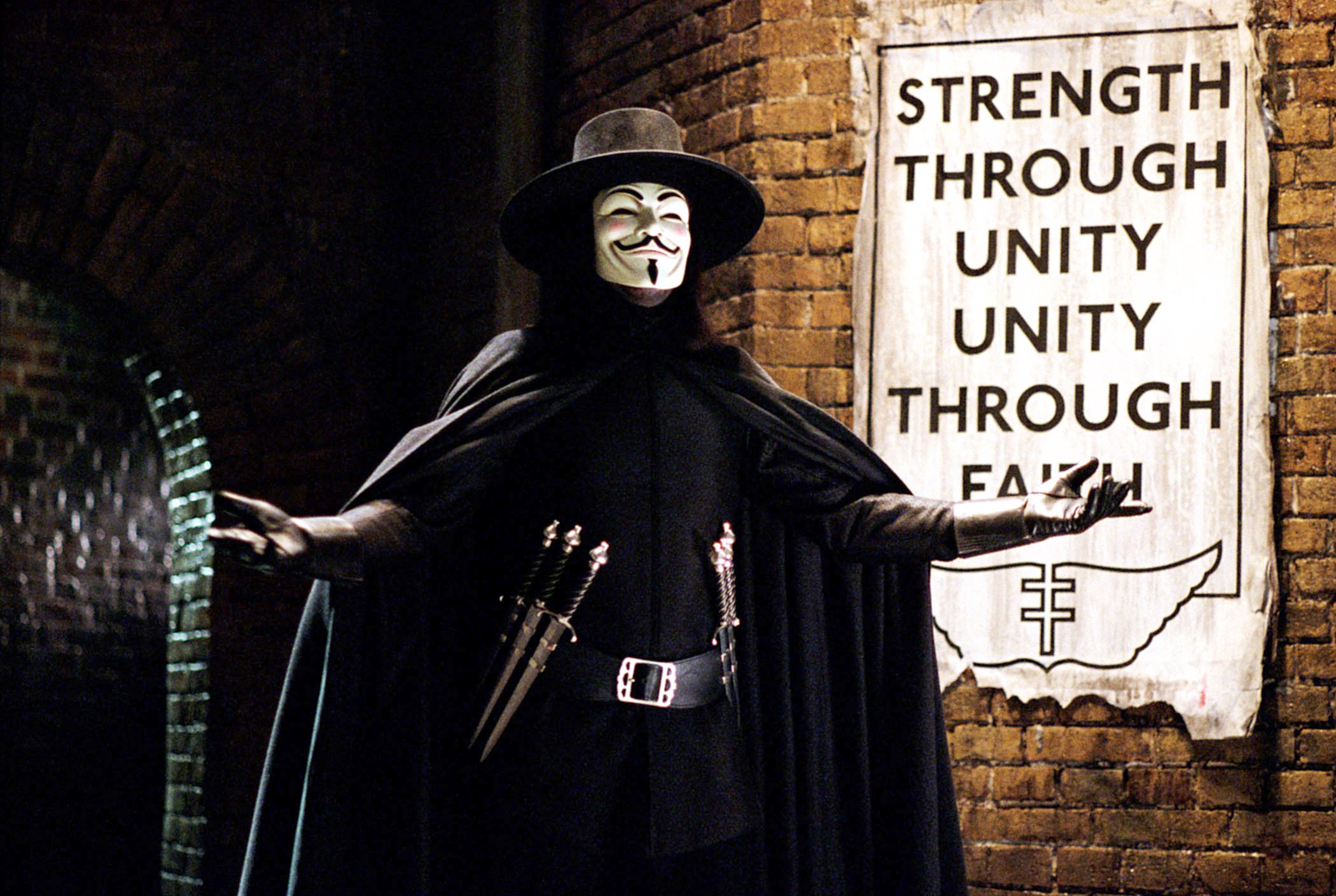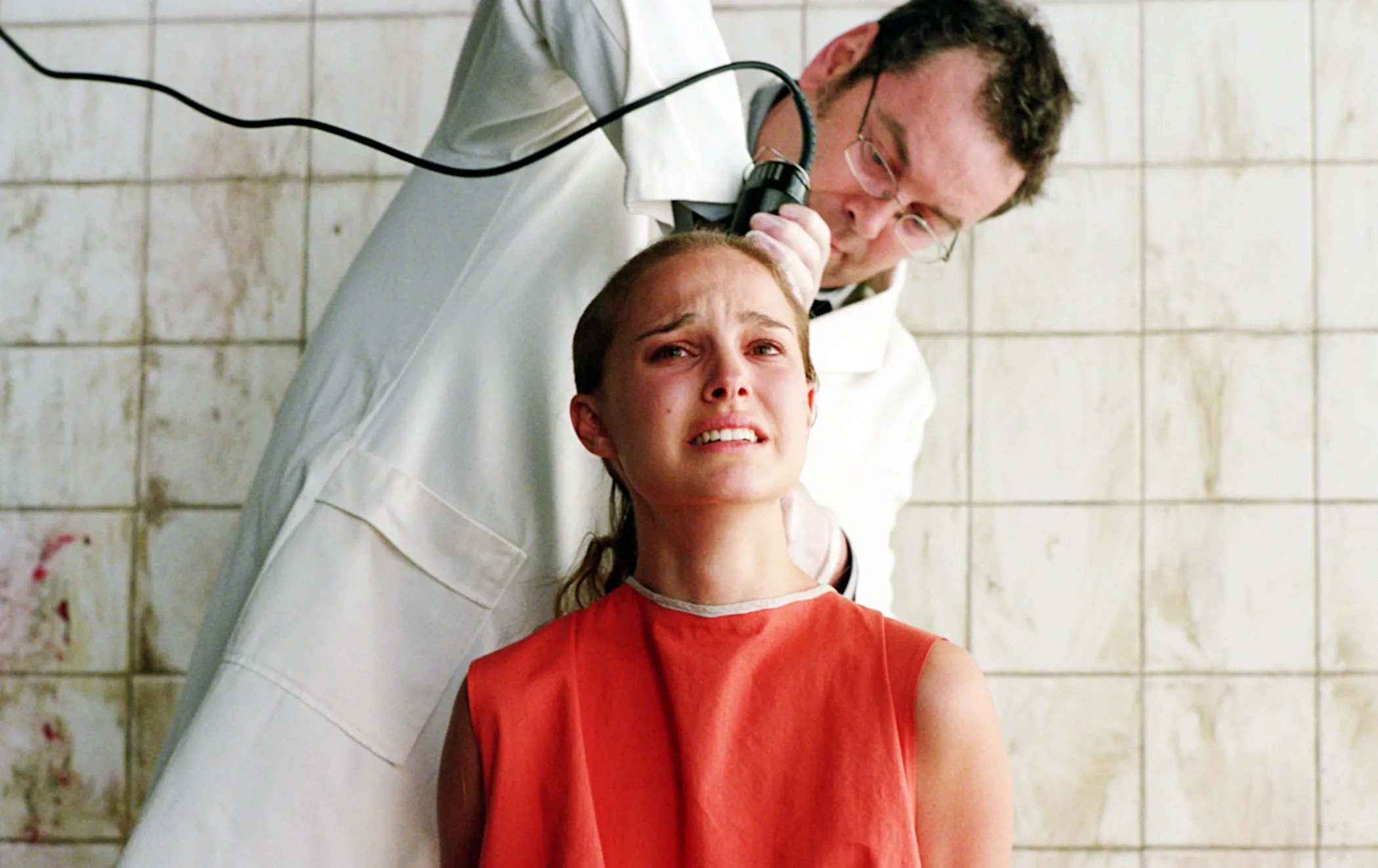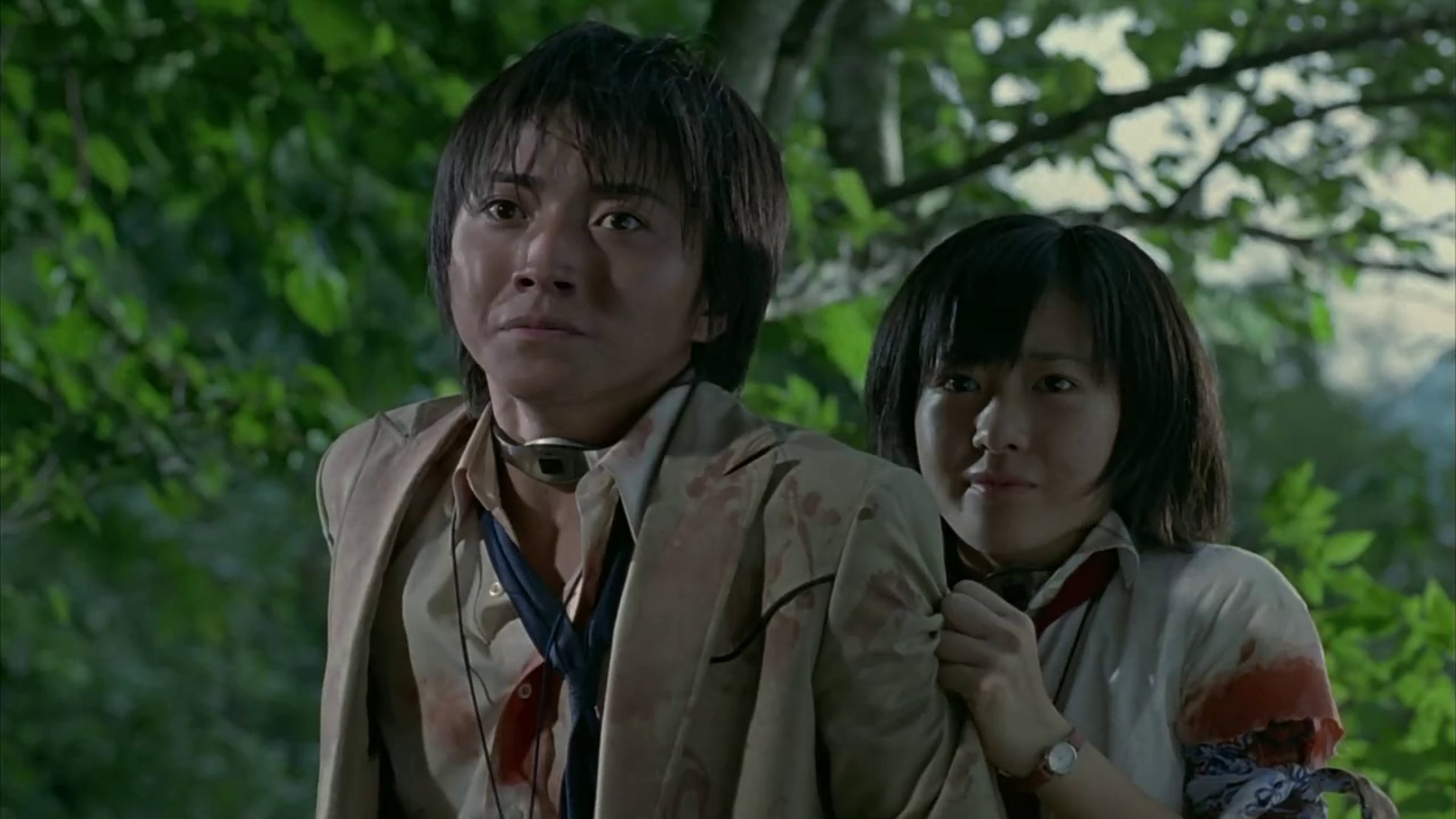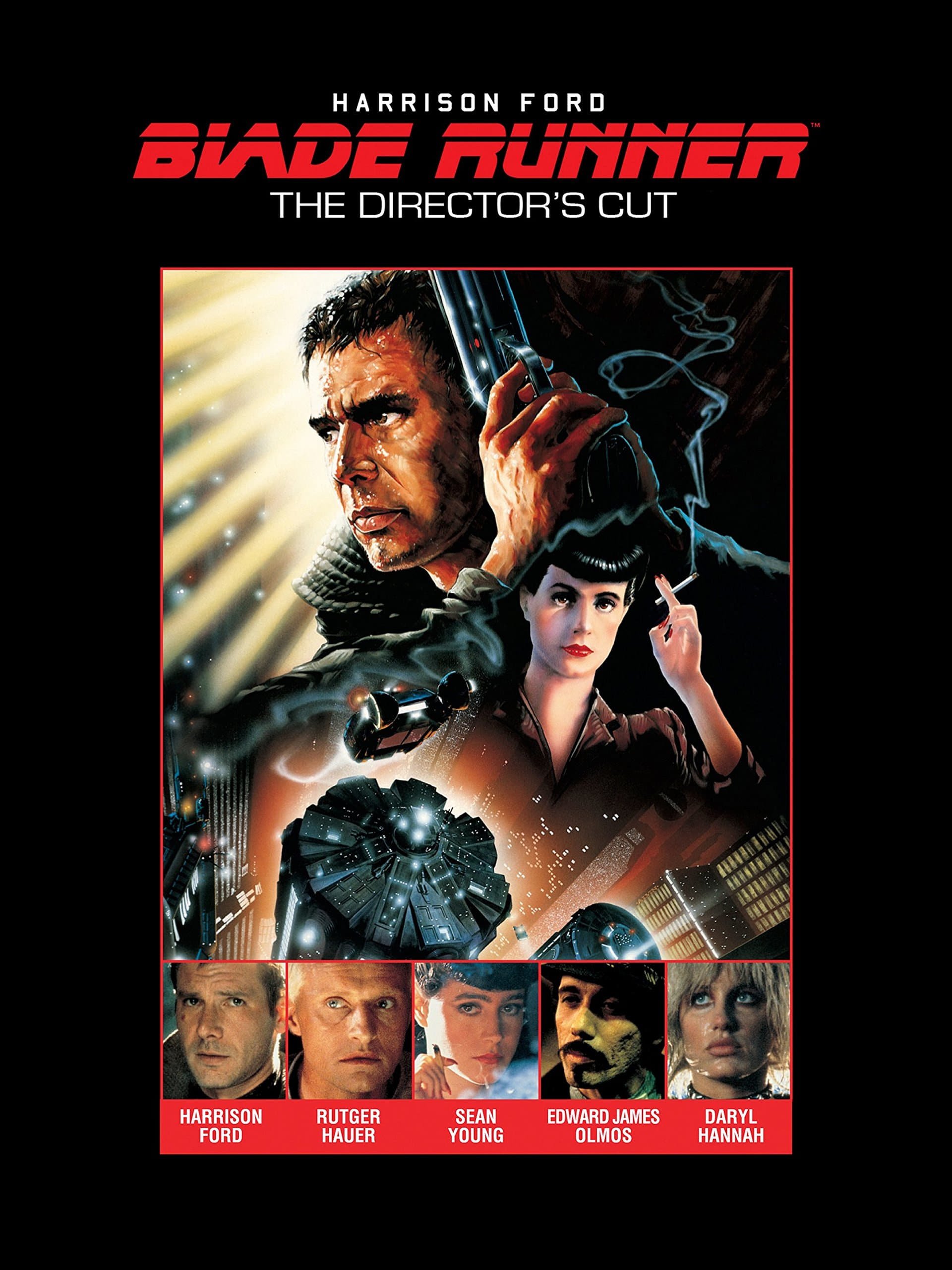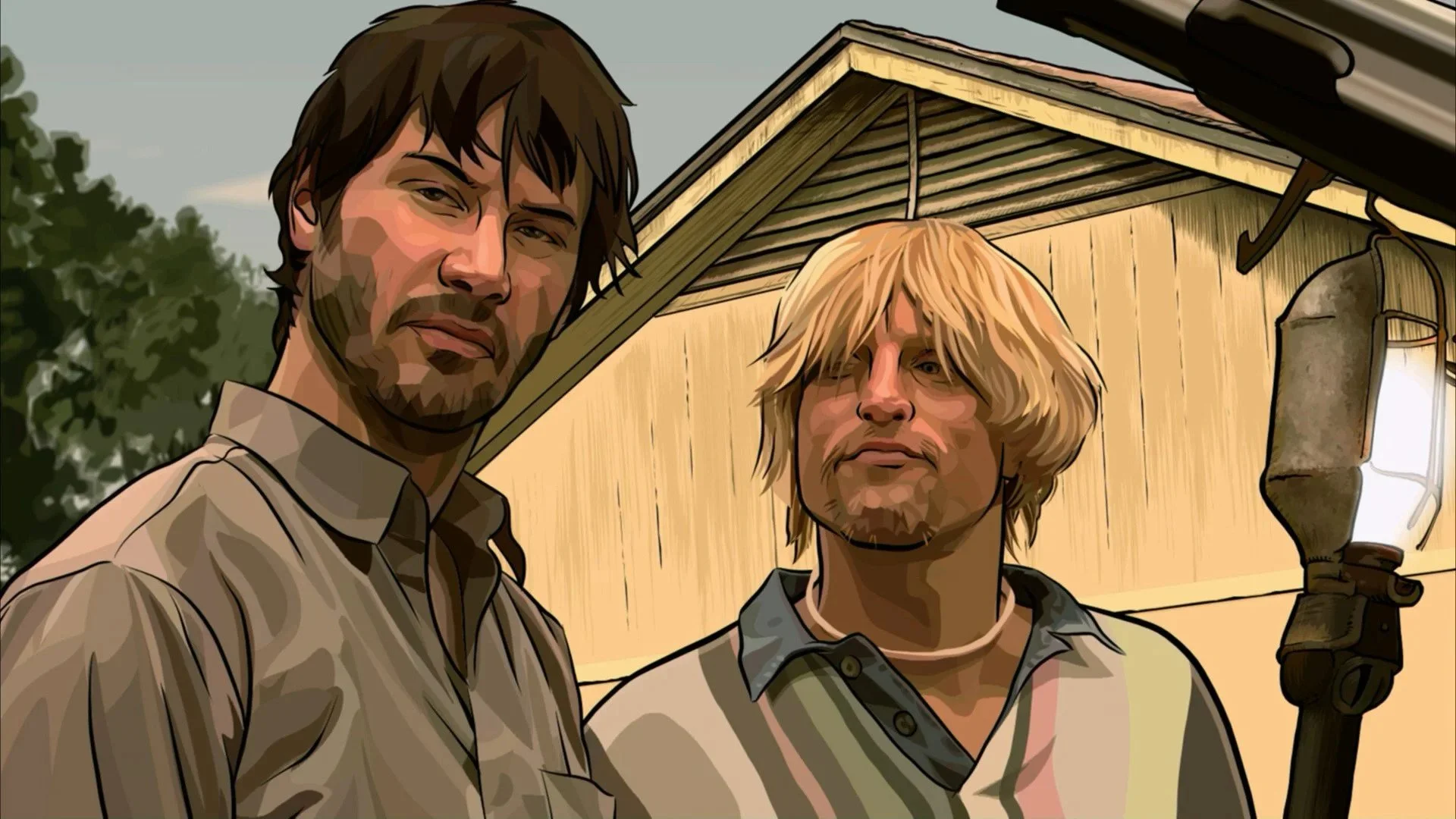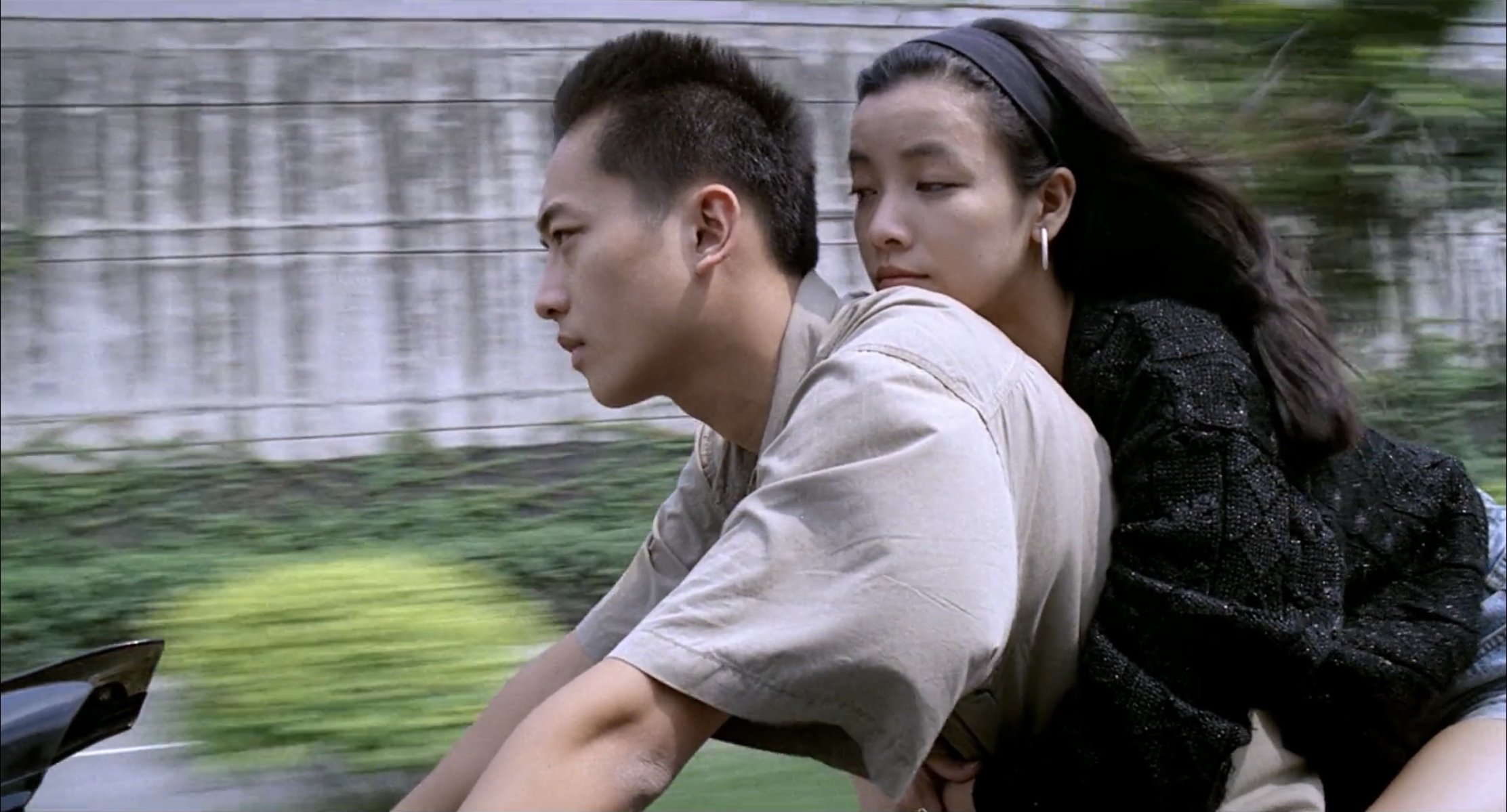The Sabukaru Guide to Dystopian Movies

Haruki Murakami once wrote that “everyone, deep in their hearts, is waiting for the end of the world to come.”
As sweetly cynical as it is, there’s an undeniable truth to this sentence. It is no coincidence that in times of global turmoil, it is dystopian fiction that seems to rise in popularity time and time again. The barren wastelands, the neon-lit skies, the cyberpunk technology, when society is on the eve of the unknown, we indulge in this idea that when left to our own devices, we aren’t all just waiting for the end of the world to come, but actively walking towards this eventual oblivion.
Sabukaru came together to formulate this very subjective list of the most iconic dystopian movies.
Follow us as we explore the madness that is dystopian cinema:
THEY LIVE [1988]
To start off our list we delve into a film that is a real subculture cult treasure. “They Live” was directed by John Carpenter and stars ex-WWE wrestler Roddy “Rowdy” Piper as the main character. Piper plays the role of “Nada”, a homeless drifter who finds construction work in Los Angeles. He finds shelter in one of the local shanty towns surrounding L.A. and befriends himself with the locals. One night as he watches TV, the channel gets hacked by a mysterious group and a message is sent to all those watching.
“We are living in an artificially induced state of consciousness” proclaimed the hacker. He soon comes in touch with a group that introduces him to a special pair of black sunglasses. These show the world how it truly is. All advertisement posters show their true subliminal message. Nada is stunned at first but he also quickly realizes something far more sinister. The posters and signs are not the only things changing when Nada wears the sunglasses. It turns out that society has been invaded by alien creatures disguising themselves as humans. They form the upper class and keep a constant grip on the lower human classes. Nada has nothing more to lose and he is filled with rage. In his own words "I came here to kick ass and chew bubble gum ... and I'm all out of bubble gum."
They Live is not only a very good and enjoyable dystopian film but it also had a big influence on pop culture. The fashion brand "OBEY", founded in 2001 by street artist Shepard Fairey was directly and specifically inspired by the visuals of "They Live".Furthermore, Slovenian communist-modernist philosopher Slavoj Žižek likes to famously make use of the metaphorical sunglasses from They Live in order to point out subliminal meanings or messages in objects. Overall, this film is a true gem with its trashy sci-fi attributes but also its political criticism. A must-watch for every fan of dystopian cinema.
TOTAL RECALL [1990]
An absolute blockbuster of a film. Total Recall is set in a futuristic dystopian society where people can buy implanted memories of a vacation, rather than taking the actual vacation itself.
One of these people is Douglas Quaid played by Arnold Schwarzenegger. Quaid pays to get the digital memories of him being a secret agent on Mars implanted in his brain, as a substitute for a holiday. But the implanting process goes wrong and he awakes from his artificial sleep in a state of panic. The memories feel real … maybe too real? There is only one place where Quaid might find answers: Mars.
ESCAPE FROM NEW YORK [1981]
The future isn’t bright. Overpopulation and a rising food shortage have made the crime numbers skyrocket. The US government has decided to turn the entire Manhattan island into a maximum security prison in order to battle crime in its entirety. But this plan failed. What it created was a prison world run by the prisoners and their gangs. The president’s Air Force One plane gets hijacked and forced to land right on this prison island of Manhattan.
All crew members die in a crash but the president survives as he escapes the crashing airplane in an escape pod. Now he is in the hands of the vicious gangs on Manhattan island. The police try to rescue him but fail. No chance of rescue … or is there? Enter: Snake Plissken. Ex-special forces soldier and currently in prison on the other side of the country. The government gives him two options: rot in prison for the rest of his life or … risk his life on the mission to save the president. His choice is obvious and there is no turning back …
Escape from New York was the key-influence to one of the most groundbreaking video games of all time: Metal Gear Solid. Snake Plissken is not only visually but also in regards to the name a direct inspiration for Solid Snake. Hideo Kojima has many times confessed his love for the film.
RUNNING MAN [1987]
Based on one of the only sci-fi novels by Stephen King, Running Man is yet another fantastic film that truly lives through Arnold Schwarzenegger’s performance. In a future that is ruled by the “Network”, society has reached a state of constant addiction and dependency on Television. The government has a new solution to the rising number of prison inmates. Every convict is given a choice between serving time in prison or … “The Running Man”!
A TV show with a game between life and death.
THE ROAD [2009]
The Road is often [and justifiably] dubbed one of the darkest, most morbid works of modern dystopian fiction. Based on the novel of the same name by Cormac McCarthy, The Road is a grounded and unwavering look into a post-apocalyptic world that seems entirely devoid of hope. Unlike many works of apocalyptic fiction in which the protagonists are seemingly able to walk untouched through a world of horrors, The Road is unwavering in the hopeless reality it presents, so much so, that finding a single can of coke is beautifully crafted into one of the most uplifting and sentimental moments of the entire movie. But, this scene almost didn’t even make it in the movie. In a time over on-the-nose product placement, it says something about the tone of The Road that Coca-Cola was reluctant to have its drink anywhere in this movie.
A nameless father and son are traveling through the American wastelands, constantly moving forward with no clear direction where they are going; all that matters to survival is that they continuously put one foot in front of the other. All around them are marauding gangs of murderous cannibals, scavengers, and those equally willing to do whatever it takes to survive.
The Road is carried by the emotional performances of its small cast. Bleak doesn’t begin to describe the landscapes of this post-apocalyptic America but knowing some of the shots were filmed in New Orleans after it was ravaged by Hurricane Katrina gives a clear impression of the dystopia it has etched out. The lack of explanation on how America fell into ruin and how humanity crumbled helps to distinguish this from most dystopian fiction that focus too much on the step-by-step downfall of society. Instead, the depravity of this world is placed front and center, and all you can do as the viewer is keep putting one foot in front of the other and walking down that road.
CHILDREN OF MEN [2006]
Children of Men is the brainchild of Mexican-born producer, screenwriter, and director Alfonso Cuarón. Cuarón’s work spans cinematic genres, from directing Oscar-winning dramas like Roma, to delving into fantasy with Harry Potter and the Prisoner of Azkaban [the highest rated of the franchise], and even working alongside the uncanny Guillermo del Toro on Pan’s Labyrinth. However, it is when given the creative control as a writer-director, as with Children of Men, that we see Cuarón’s ability to balance powerful cinematography and deep, societal insight.
Children of Men is an action-thriller set in 2027, 18 years after the unexplained and sudden infertility of all women on earth. With a world in crisis, England has become a hyper-nationalistic political warzone in which refugees are locked in cages, and humanity as a whole, without children, is just a few decades from fizzling out of existence. The allegorical significance, and lack of hope, of a future without children allow for the perfect exploration of a modern-day dystopia. Follow Theo Faron, an ex-activist who has become a cynical beaurocrat as he is thrown back into a world of militant activism and is sent on a mission to protect the future of humanity.
Children of Men will keep you gripped from the opening scene and, through the repeated viewings, if you’re willing to put yourself through the emotional rollercoaster time and again, you’ll see Alfonso Cuarón's nuanced inspirations littered throughout the movie. From music and art, to religion and cinema, blink and you’ll miss it scenes recreate famous works of art from a Pink Floyd album cover, to Michaelengelo’s La Pietà, all in throwaway scenes that seem, on the surface, to be nothing more than aesthetically appealing shots. From a purely cinematic perspective, Children of Men is unparalleled. Long, single-take shots, condense so much action and gut-wrenching emotional drama that you won’t realize [or believe] it could be achieved in a single-take. The cinematic complexity of this film makes it a hallmark piece of cinema, let alone dystopian cinema.
MINORITY REPORT [2002]
Minority Report is Steven Speilberg’s cinematic adaptation of Phillip K. Dick’s 1956 short story of the same name. On the surface, Minority Report is a high-octane sci-fi movie which flips the classic noir, murder-mystery structure. In a world in which a crime can be predicted with pinpoint accuracy before it happens, Minority Report isn’t the classic hunt for a killer, but the nigh-impossible hunt for a victim and motive in a crime that hasn’t happened yet.
Set in Washington D.C. in 2054, murder has been all but eliminated by the Department of PreCrime. Police operate in the direction of three psychic individuals, the precogs. Through psychological experimentation, these three developed prophetic visions that allow officers, led by Chief John Anderton, to see crimes before they’re committed and arrest would-be criminals in the act. Raising questions of free will and determinism, the plot takes a dramatic turn when the precogs see Chief Anderton murdering a man he’s never seen before. Now, Chief Anderton has to go on the run, searching for answers while his own police force hunts him down.
Minority Report is built on the classic dystopian theme of a society ruled by runaway technology. Living in the perfect surveillance state [one which needs no camera], there are clear similarities to the Thought Police of Orwell’s ‘1984’ and even to the religious idea of God who sees all, even that which you are yet to do. What makes Minority Report even more terrifying is the ease with which belief in free will has been abandoned in the name of a safer society. This modern classic is an action-packed sci-fi murder mystery that will keep you guessing with the twists and turns on par with the greatest detective stories.
V FOR VENDETTA [2005]
From the mind of Alan Moore, the most important comic book writer of the last 50 years, comes V for Vendetta. This adaptation of Moore’s graphic novel was written by the Wachowski’s and directed by James McTeigue [assistant director on The Matrix trilogy and Dark City, both featured in this list]. V for Vendetta represents one of those rare few movies that has seeped into the cultural psyche and become a staple in pop culture around the world. The mask worn by the revolutionary anti-hero, V, has become a global symbol of rebellion for protestors, activists, and the hacktivist group, Anonymous. Before all of that, however, it was known as a Guy Fawkes mask, a tribute to a 16th-century terrorist who tried to blow up the British House of Lords, assassinate King James I, and restore a Catholic monarch to the throne. V for Vendetta sets out in imagining a modern-day Guy Fawkes figure who seeks to overthrow the fascistic British government.
V for Vendetta is set in a near-future, neo-fascist England. One night, Evey Hammond is saved by a masked freedom fighter named V, who draws Evey into a world of terrorism and espionage, all in the name of revolution. Witty, highly stylised and action-packed, the fact that V for Vendetta is taken straight from the pages of a graphic novel would likely come as a surprise to most viewers. Its lack of comic book tropes has helped it surpass the confining category of ‘comic book movie’ and defined it as a great work of dystopian fiction.
V for Vendetta takes clear inspiration from both history and fiction. The symbolism has overt parallels with Nazi Germany, while the protagonist is straight from The Phantom of the Opera; This movie jumps from a retelling of Guy Fawkes to a dystopian future on par with Orwell’s ‘1984’. The inspirations and influences throughout V for Vendetta make it as much a deep dive into pop culture and history as it is a work of fiction. The unflinching way it addresses issues of totalitarianism, homosexuality, Islamophobia, terrorism, and the use of fear as a weapon [with clear references to America’s War on Terror] make it clear why this movie [and the infamous mask] became such a central tool for revolutionaries and activists around the world.
BATTLE ROYALE [2000]
Based on the novel by Koushun Takami and directed by Kinji Fukasaku [well-known for a slew of Yakuza movies in the 1970s and an inspiration for elements of Kill Bill!] Battle Royale has transcended the dystopian genre and, despite the constant controversy of its heavy themes, has become a seminal part of global cinema culture. Condemned by Japanese government officials, banned in several countries, and never receiving a wide release in America due to legal fears about the post-Columbine response, Battle Royale’s controversy helped immortalize its reputation as a cult classic. This is another innovative take on the dystopian genre which, although set in the near future, is firmly grounded in contemporary Japan. Coming out of Japan's counterculture movement of the 1960s, which saw heavy clashes between university protesters and police, Battle Royale hinges on the idea of youth alienation and a government desperate to suppress it.
Set against the backdrop of a totalitarian Japanese government, the Battle Royale Act has been established to curb rebellious juvenile delinquency. Each year a single class of high school students is selected to take part in the BR Act. Unbeknownst to them, and thinking they are going on a class trip, they are kidnapped, placed on a remote island, and given random weapons. They are told they have one objective, to kill one another until only one student remains, and if they fail to do so, all will die.
Brutally violent, emotionally scarring, and apathetic to human life as a whole, few movies have had such a lasting cultural impact as Battle Royale, none have come to semantically establish their very subgenre as Battle Royale has. It’s hard to imagine movies like The Purge or Hunger Games existing without this movie, but one of the more lasting and overlooked influences of Battle Royale is on the gaming world. Today, the Battle Royale subgenre dominates the online gaming market, all of which have a direct lineage to this movie. Still contentious to this day, Battle Royale is a must watch because nothing like it has come before or since.
GATTACA [1997]
Gattaca was the filmmaking debut of director-writer Andrew Nicool [writer of The Truman Show]. An out-of-the-gate dive into an oppressive yet believable future in which technological selective reproduction, [i.e. technology designed to choose the best genetic qualities for your children] has been taken to an extreme. This has created a world in which eugenics has become normalised and opportunities in life are based, not on ability, but on genetic predisposition. Gattaca is a bio-punk exploration of the ideas of free will, destiny and the ease with which well-intentioned technology can create an oppressive, dystopian society.
Set in the “not-too distant future”, Vincent Freeman was a rare, natural birth and not the product of genetic modification. As a result, he is born with several health conditions that have limited his physical abilities and lifespan. Set in a society with a caste-system built on genetic superiority, in which jobs, relationships and opportunities are determined solely on your DNA, Freeman refuses to let his genetic limitations hold him back from achieving his dream of being an astronaut. However, living in a high-tech society which is meticulously monitored and in which regular DNA testing makes it impossible to hide, Freeman’s whole life has to be a carefully constructed lie to keep him hidden in plain sight.
Gattaca is a beautiful, tense, often erotic and exceedingly stylised sci-fi romance. Gattaca is equally as visually astounding as it is engaging, with a compelling and uncomfortable plot, contrasted against the cold, futuristic aesthetic of blue-green tones. While Gattaca is intended as a cautionary tale for the future, it does so with action-packed drama that puts it on par with dystopian and sci-fi classics. Rife with ethical and societal commentary on discrimination, Gattaca’s pessimistic predictions for the future are terrifyingly believable. A must see classic for any fans or dystopia, sci-fi or thrillers.
SNOWPIERCER [2013]
Snowpiercer is based on the post-apocalyptic French graphic novel ‘Le Transperceneige’. Snowpiercer was Boon Joon Ho’s [The Host, Parasite] first contribution into the scope of western cinema. With Korea’s current explosive popularity in the world of TV and cinema, Snowpiercer still stands as one of the most expensive Korean productions to date, and one of the most critically acclaimed. The creative and deeply cynical minds behind ‘Le Transperceneige’ [Jacques Lob, Benjamin Legrand and Jean-Marc Rochette] couldn’t have found a more creative and equally cynical director than Boon Joon Ho, and Snowpiercer is already a modern-dystopian classic.
Set in 2031 on a train which is constantly circling a world devastated by natural disaster, Snowpiercer uses the carriages of the train as an overt analogy for class inequality. Each carriage of the train, from the poverty stricken in the tail of the train to the affluence at the front of the train, represents a different rung of the class system. After 17 years of suffering and poverty in the tail car, the passengers, lead by Curtis Everett, instigate a revolution as they charge their way through the carriages. What remains behind each carriage door is a mystery, whether it be violence, affluence or horrifying truths about their lives on the train; all they know is that it is better than living under the boot of oppression any longer.
In his attempt to address how overlooked non-Western cinema is, and and in classic Boon Joon Ho fashion, despite being a movie aimed at western audiences the plot hinges around a Korean-speaking character, Namgoong Minsoo [classic fashion because not only did Joon Ho say during his Oscar acceptance speech for Parasite, that Western audiences are lazy for not liking subtitled movies, but also that he chose Namgoong Minsoo’s name simply because "[it] would be most difficult for foreigners to pronounce”]. A movie which refreshingly focuses on an action-packed, but deeply disturbing, plot rather than the overly stylised effects of other CGI-driven disaster movies, Snowpiercer will leave your skin crawling and your mind racing [fast enough to circle the Earth 3 times a year].
BLADE RUNNER [1982] / BLADE RUNNER 2049 [2017]
What can be said about Blade Runner that hasn’t been said before? Blade Runner is a neo-noir sci-fi epic which has become one of, if not the most definitive dystopian movie, to date. It has shaped our very [cynical] concept of the future and it's hard to find a dystopian movie that doesn’t take some aesthetic elements from it. Directed by Ridley Scott [Alien franchise] and based on the Phillip K. Dick novel ‘Do Androids Dream of Electric Sheep?’ Blade Runner diverges from many of the plot points of the novel, establishes its own creative style and raises its own moral questions, but both novel and movie stand as unwavering pillars of dystopian fiction. Blade Runner 2049 was the long-awaited sequel which had an impossibly high bar to reach, but, being directed by Denis Villeneuve [Arrival, Dune], Blade Runner 2049 delivered in incredibly Villeneuve-ian style.
BLADE RUNNER [1982]
Following an uprising of replicants [androids] which were being used as slave labor on off-world colonies, these advanced replicants have been made illegal on earth because of the threat they pose to humanity. To deal with them, a special unit of police, known as Blade Runners. are tasked with tracking down and deactivating any remaining replicants on earth. Set in Los Angeles, 2019, officer Rick Deckard is a Blade Runner sent to investigate a new more advanced kind of replicant, one that’s convinced it’s human. Blurring the line between humans and androids and constantly keeping you guessing who [and what] can be trusted, it’s impossible to watch Blade Runner without a new found understanding of what it means to be alive./ In Blade Runner 2049, when K, a replicant-turned-Blade Runner, is deactivating a rogue replicant, he falls down a rabbit hole which, once again, blurs the now fading line between human and android. As an android himself, K is sent on a spiraling ontological journey that makes him question his own life, if it can be called that at all.
The moral questions raised in the Blade Runner series are the quintessential ones of sci-fi and dystopian fiction: Is humanity the greatest threat to its own survival? What does it mean to be alive? What are the dangers of playing God with nature? These aren’t questions Blade Runner necessarily sets out to answer, but they’re questions that will definitely be on your mind after seeing it. Blade Runner 2049 amps up the cyber-punk elements as K goes from scavenging in tech-trash piles to soaring over neon-lit skylines. 2049 was a cinematic wonder, its tactile world building and its continuation of the core Blade Runner themes offered a creative and mind-bending sequel that will keep you guessing not only where it’s going, but what can even be trusted about what we already know. If you haven’t already seen Blade Runner, yet you’re a fan of dystopian fiction, then you’ve spent life skirting around a classic. If you’re a traditionalist and are yet to see Blade Runner 2049, you need to swallow your pride and let yourself be taken on a cinematic journey unlike any other.
THE MATRIX [1999] / ANIMATRIX [2003]
Another of the most definitive dystopian movies on this list and one which sparked a cyberpunk generation and fears around A.I. that are unwavering, even today. Written and directed by the Wachowkis, and with influences ranging from Japanese anime to Hong Kong martial arts movies, The Matrix leaps from philosophising about existentialism, embracing religion, to taking you into one of the most harrowing depictions of dystopia. Released on the eve of Y2K fears, The Matrix sews all of these themes through a tapestry of 20th century new-age technology. The Animatrix, through a series of short animated movies, is a prequel that fills in the gaps from the world we know today [or knew in 1999] to that of The Matrix.. Even without the context of The Matrix, The Animatrix is a standalone testament to dystopian creativity, sci-fi exploration and, above all, an ode to one of The Matrix’s great inspirations, anime.
Set in 1999, Thomas Anderson is an office worker / hacker [under the alias Neo] going through the mundanity of 20th-century life when he is dragged into the surreal, world-bending idea that his life and everything he knows is a simulation. Presented with two options: wake up and join an uprising against the A.I. [the red pill] or embrace the safety of the only life he’s known [the blue pill]. The Animatrix’s 9 short movies are uniquely animated, stylised and chronologically placed throughout the expansive Matrix universe. Each having a different director [including Cowboy Bebop’s Shinichirō Watanabe and Akira’s Kōji Morimoto] helps to create constantly shifting sands of animation and creative vision.
To understand just how impactful The Matrix has been for the generation who grew up along with it, it’s near impossible to see neon green text without instantly being transported back to Neo’s flickering screens of The Matrix. From the very concept of being ‘red-pilled’, to its accreditation in paving the way for superhero movies, The Matrix is more than a movie, its a generationally-defining piece of fiction.
A SCANNER DARKLY [2006]
This psychological thriller is based on the novel by Philip K. Dick [who, at this point in the list, is clear is one of the most influential minds in the realm of dystopian fiction] and director-writer Richard Linklater, creator of the existential dreamscape that is Waking Life. A Scanner Darkly is largely attributed with being the most compelling and appropriate uses of rotoscoping [live footage traced over and animated] in modern cinema, so much so that it's hard to imagine how this movie could exist without it, with the plot relying on a technology which constantly shifts your appearance like a human kaleidoscope.
Set in a near-future U.S. in which a spiraling war on drugs leads to a powerful drug, substance D, sweeping the nation and leading to an addiction epidemic.Bob Arctor is an undercover agent who is juggling his work surveilling potential criminals and his substance D addiction [with the spiraling hallucinations this causes]. In this world, all detectives wear “scramble suits” which constantly shift their appearance and voice to keep their identity hidden for everyone, even their colleagues.Lost in a self-reflective and drug-addled journey, Arctor quickly finds him tasked with surveilling himself.
A Scanner Darkly constantly challenges what is real and what can be trusted in the effort to make a hypnotic visual labyrinth of a movie. In a dystopian world of epidemic drug addiction which seems increasingly believable with the opioid epidemic and one in which the anonymity of the police force keeps you constantly on edge, constantly unsure.




